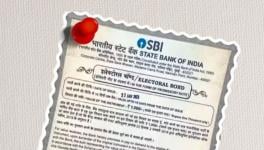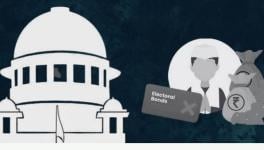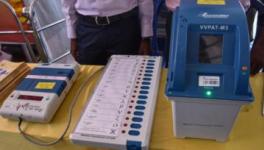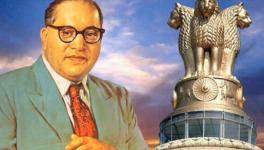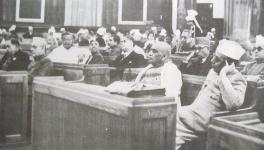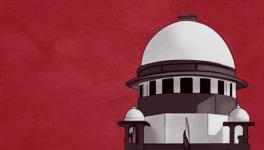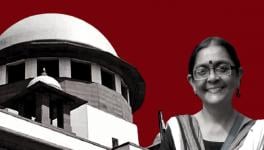Bhima Koregaon: First Week in New Year Repeats Same Old Story of Procedural Grind
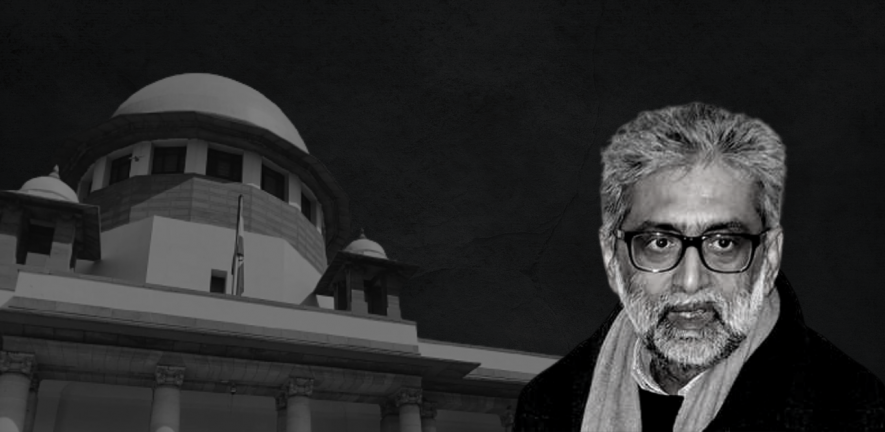
Image credit: The Leaflet
This week, the Supreme Court granted an extension to the stay on the bail granted by the Bombay High Court to journalist and human rights activist Gautam Navlakha.
Navlakha is an accused in the Bhima Koregaon–Elgar Parishad Maoist links and criminal conspiracy case and is charged under the Unlawful Activities (Prevention) Act, 1967 (UAPA).
Arrested on August 28, 2018, he was initially kept under house arrest, and subsequently sent to judicial custody in April 2020. Following his plea in the Supreme Court, he has been under house arrest since November last year.
It is a well-established principle in Indian jurisprudence that the right to life and liberty under Article 21 of the Indian Constitution entails that bail be the rule and jail be the exception.
Anti-terror laws such as the UAPA create exceptions to this rule of bail by imposing a higher threshold for the grant of bail.
Under Section 43D(5) of the UAPA, the courts are required to analyse whether the allegations against the accused are prima facie true, as opposed to inquiring into ‘reasonable grounds’ for denying bail, as required by other statutes on bail.
So the ‘practice’ of staying bail granted in UAPA creates an additional barrier between the right protected under Article 21 and a person’s continued incarceration.
This additional layer is exercised despite the usual procedure of appealing against the bail Order of the high court for cancellation of bail being available to the prosecution.
The Chief Justice India (CJI) has previously remarked that the rule of ‘bail but not jail’ is one of the most fundamental rules of the criminal justice system. “Deprivation of liberty, for even a single day, is a day too many,” the CJI is on record as saying.
On another occasion, a CJI-led Bench stressed the importance of ‘personal liberty’ in the following words: “We will be acting in breach of Article 136 (special powers to grant relief under the Constitution) if we do not act in the matter of personal liberty and grant relief.”
Facts
On December 19, 2023 a division Bench of the high court comprising Justices A.S. Gadkari and Shivkumar Dige granted Navlakha bail on merits. The high court, however, stayed the bail Order for three weeks to allow the National Investigation Agency (NIA) to appeal in the Supreme Court.
On Friday, a Supreme Court Bench comprising M.M. Sundresh and S.V.N. Bhatti extended the stay on the bail Order, following a request by the NIA.
Senior advocate Abhishek Manu Singhvi, appearing for Navlakha, argued that Navlakha was entitled to be allowed bail on parity with other co-accused persons— Vernon Gonsalves, Arun Fereira, and Anand Teltumbde— who have been allowed bail by the Supreme Court.
Whereas Additional Solicitor General S.V. Raju stressed that Navlakha’s matter should be placed along with NIA’s appeal in the case of another co-accused— forest rights activist, Mahesh Raut.
The court extended the stay on Navlakha’s bail till the CJI allocates the matter to a Bench.
Raut was granted bail by the high court on September 21. The high court had allowed the bail Order to be stayed for a week.
Raut, however, continues to be held in prison, since the appeal by the NIA remains pending in the Supreme Court.
Raut’s matter has been adjourned four times for various reasons, including paucity of time and adjournments sought by the NIA, resulting in the stay continuing for almost three months.
Since the matters were pending before different Benches, the court, on Friday, directed the registry to place Navlakha’s matter before the CJI to consider posting all similarly placed matters before the same Bench.
In addition, another year starts on a similar note of hearing bail applications of the accused persons in the Bhima Koregaon case held in judicial custody without trial.
On Wednesday, the Supreme Court issued notices to the respondents, the Maharashtra government and the NIA, on the bail plea of anti-caste activist and academic, Hany Babu— a co-accused in the Bhima Koregaon case.
Babu was arrested in July 2020 in the case and is currently lodged at the Taloja prison awaiting trial.
A Bench comprising Justices Aniruddha Bose and Sanjay Karol directed the respondents to file their responses within three weeks.
Babu’s bail application challenges the decision of the Bombay High Court, dated September 19, 2022, that rejected his plea. The NIA has accused Babu of being a co-conspirator in propagating Maoist activities and ideology.
Background
In connection with the case, on June 6, 2018, Pune police arrested several activists, lawyers and academics.
These included human rights lawyer and Dalit rights activist, Surendra Gadling; Dalit rights activist and editor of the Marathi magazine Vidrohi, Sudhir Dhawale; activist and researcher, and member of the Committee for the Release of Political Prisoners, Rona Wilson.
Former head of the English department at Nagpur University, and Dalit and women’s rights activist, Shoma Sen; and Mahesh Raut, who is a former fellow of Prime Minister’s Rural Development Fellowship Programme of the Union Ministry of Rural Development, were also arrested.
On August 28, 2018, activist, poet, writer and teacher Dr P. Varavara Rao; trade unionist, activist and lawyer, Sudha Bharadwaj; Arun Ferreira; Vernon Gonsalves; Gautam Navlakha were arrested and lodged in Mumbai’s Taloja Central Jail.
In the subsequent months, scholar, writer and civil rights activist, Dr Anand Teltumbde; tribal rights activist and Jesuit priest, Father Stan Swamy; Hany Babu; and musical performers, anti-caste activists and members of the cultural troupe Kabir Kala Manch, Sagar Gorkhe, Ramesh Gaichor and Jyoti Jagtap, were also arrested.
Trial is yet to begin in the Bhima Koregaon case. The prosecution in the case has filed a chargesheet exceeding 5,000 pages and intends to cross-examine at least 200 witnesses.
Ten of the 16 accused persons are presently incarcerated, having now spent two to almost five years in judicial custody without trial.
In addition to Gonsalves and Ferreira, who were granted bail in 2023, five of the other accused persons, Sudha Bharadwaj, Varavara Rao and Anand Teltumbde, Raut and Navlakha have also managed to secure bail so far.
Of these, Bharadwaj, Rao and Teltumbde have been released while Raut and Navlakha continue to be behind bars, their bail having been stayed.
Father Stan Swamy, passed away in judicial custody in July 2021 after contracting Covid in prison while awaiting bail on medical grounds.
Sarah Thanawala is a staff writer at The Leaflet.
Get the latest reports & analysis with people's perspective on Protests, movements & deep analytical videos, discussions of the current affairs in your Telegram app. Subscribe to NewsClick's Telegram channel & get Real-Time updates on stories, as they get published on our website.









